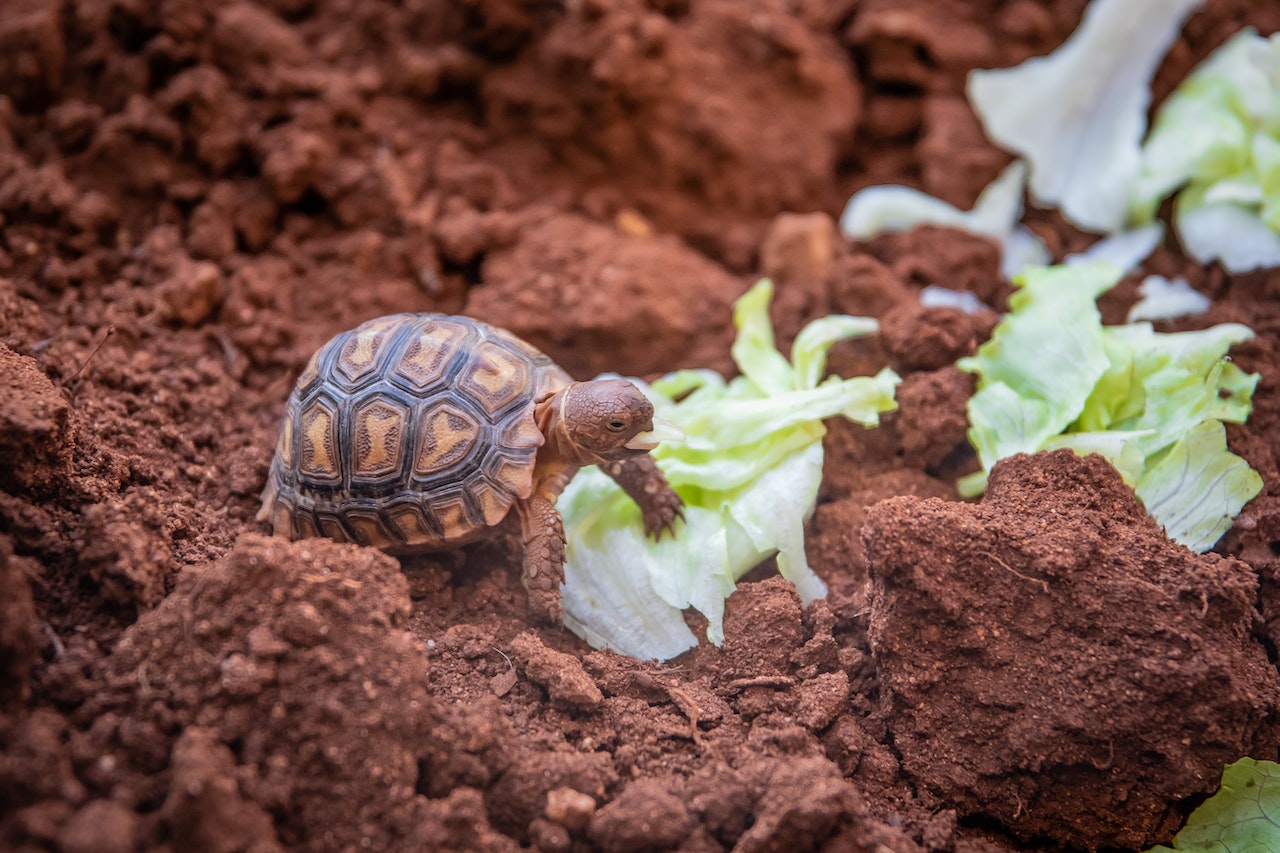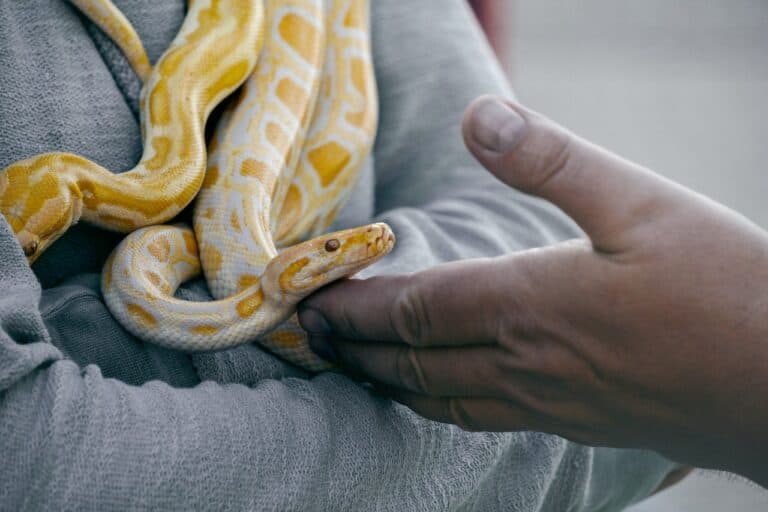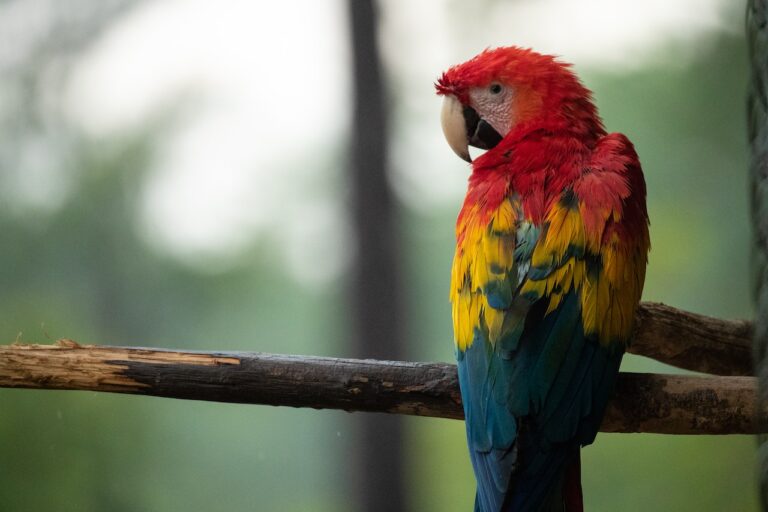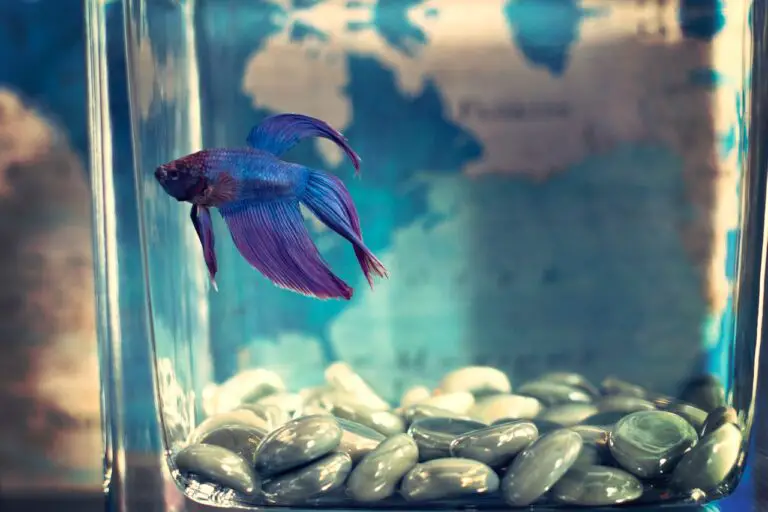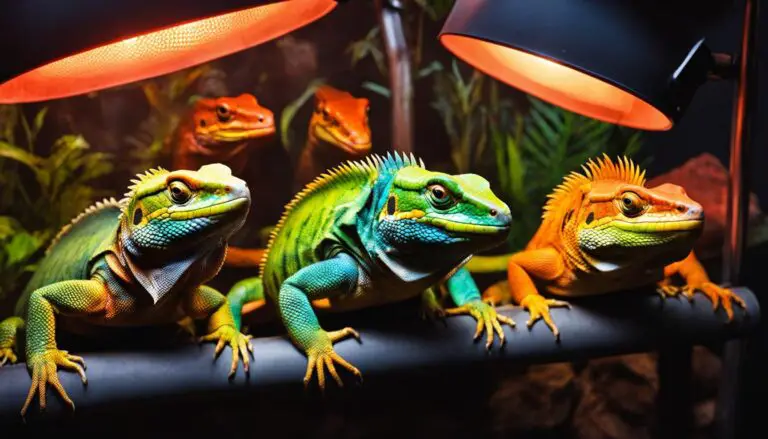Feeding Aquatic Exotic Pets: Expert Guide for Pet Owners [+ Tips]
When it comes to caring for aquatic exotic pets, providing them with a well-balanced and nutritious diet is crucial for their overall health and well-being.
Whether you own fish, turtles, or other fascinating aquatic creatures, this guide will provide you with valuable insights on how to feed your aquatic pets properly.
From understanding their dietary requirements to offering appropriate food choices, we will cover everything you need to know to ensure your aquatic exotic pets receive the best care.
Key Takeaways:
- Understand the specific dietary needs of your aquatic exotic pets based on their species, size, and age.
- Select appropriate food choices that provide essential nutrients for their optimal health.
- Implement feeding techniques that promote natural foraging behavior and engage your pets’ senses.
- Monitor their health, weight, and appetite to ensure they are receiving proper nutrition.
- Maintain a clean and healthy aquatic environment to support their overall well-being.
- Seek professional advice and consult with a veterinarian for specialized dietary considerations.
- Plan ahead for feeding your pets while on vacation, considering automatic feeders or trusted pet sitters.
Understanding the Dietary Needs of Aquatic Exotic Pets
- Different aquatic pets have varying dietary needs based on their species, size, and age.
- Aquatic exotic pets can be herbivores, carnivores, omnivores, or have specialized diets.
- Research the natural feeding habits of your pets to determine their specific dietary requirements.
Aquatic exotic pets have specific dietary requirements that differ from traditional pets.
These animals thrive on a diet that mimics their natural feeding habits in the wild.
It is essential to understand the specific nutritional needs of your aquatic pets to provide them with a healthy diet.
Selecting the Right Food for Your Aquatic Pets
- Consider the nutritional content of the food and ensure it meets the dietary needs of your pets.
- Commercially available fish pellets, flakes, and frozen or live foods are common options.
- Choose food that provides essential nutrients such as proteins, carbohydrates, fats, vitamins, and minerals.
When selecting food for your aquatic exotic pets, it is crucial to choose options that meet their dietary needs.
Consider factors such as their species, size, and age when determining the appropriate food choices.
Whether you opt for commercial fish pellets, live or frozen foods, or fresh vegetables, ensure that the selected food items are rich in essential nutrients.
Feeding Techniques for Aquatic Exotic Pets
- Scatter feeding: Sprinkle food throughout the tank to mimic natural foraging behavior.
- Target feeding: Use a feeding tube or tongs to deliver food directly to specific pets.
- Sinking pellets: Ideal for bottom-dwelling fish or turtles that feed near the substrate.
- Floating foods: Suitable for surface-dwelling fish that prefer to eat from the water’s surface.
Feeding techniques vary depending on the type of exotic aquatic pet you own.
Some pets, such as fish, may require small, frequent feedings, while others, like turtles, have specific feeding strategies.
Learn about the feeding habits of your pets and adjust your feeding techniques accordingly.
Maintaining a Feeding Schedule
- Establish a consistent feeding routine to ensure your pets receive regular meals.
- Feed your pets at the same time each day to help regulate their appetite and digestion.
- Avoid overfeeding, as it can lead to obesity and water quality issues.
Establishing a consistent feeding schedule is crucial for aquatic exotic pets.
Regular meals not only help maintain their health but also promote their natural feeding instincts.
Create a feeding schedule that aligns with your pets’ specific needs and stick to it.
Monitoring the Health and Weight of Your Pets
- Observe your pets for signs of malnutrition, such as weight loss, lethargy, or fin/turtle shell abnormalities.
- Track their weight regularly to ensure they are maintaining a healthy body condition.
- Consult with a veterinarian if you notice any significant changes in appetite or weight.
Regularly monitoring the health and weight of your aquatic pets is vital to ensure their well-being.
Keep an eye out for any signs of malnutrition, obesity, or other health issues.
Consult with a veterinarian if you notice any unusual changes in their appetite or weight.
Common Mistakes to Avoid in Aquatic Pet Feeding
- Overfeeding: Excess food can lead to water pollution and health problems.
- Providing inappropriate food choices: Some foods may be toxic or difficult to digest for certain species.
- Neglecting dietary requirements: Ensure a balanced diet that meets the specific needs of your pets.
Feeding mistakes can have adverse effects on the health of your aquatic exotic pets.
Avoid overfeeding, providing inappropriate food choices, or neglecting their dietary requirements.
Educate yourself about the common mistakes pet owners make and ensure you are providing the best care for your pets.
Addressing Special Dietary Considerations
- Herbivorous fish: Offer a variety of plant-based foods such as algae, spirulina, lettuce, or blanched vegetables.
- Carnivorous turtles: Provide a mix of animal protein like live or frozen fish, insects, and commercial turtle pellets.
- Consult with a veterinarian for specific dietary recommendations based on your pet’s species.
Certain aquatic exotic pets may have special dietary considerations.
For instance, herbivorous fish require a predominantly plant-based diet, while carnivorous turtles need protein-rich foods.
Research the specific dietary needs of your pets and tailor their meals accordingly.
Promoting Healthy Eating Habits for Your Aquatic Pets
- Encourage natural foraging behaviors by introducing feeding puzzles or food-dispensing toys.
- Use feeding techniques that engage your pets’ senses, such as live prey or scent-based foods.
- Avoid hand-feeding to prevent potential injury from aggressive feeders.
Encouraging healthy eating habits in your aquatic exotic pets is crucial for their long-term well-being.
Implement feeding techniques that promote natural foraging behavior, such as scattering food or using feeding puzzles.
These methods stimulate their minds and keep them active and engaged.
Providing Enrichment and Variety in Feeding
- Offer a diverse diet by rotating different food types, textures, and flavors.
- Introduce new foods gradually to monitor your pets’ acceptance and potential allergic reactions.
- Incorporate occasional treats or supplements to enhance nutritional variety.
Adding variety to your aquatic pets’ diet helps ensure they receive a wide range of nutrients.
Experiment with different food types, textures, and flavors to keep their meals interesting.
Remember to gradually introduce new foods and monitor their response to avoid adverse reactions.
Supplements and Vitamins for Optimal Nutrition
- Consult with a veterinarian to determine if your pets require any specific supplements or vitamins.
- Some aquatic pets may benefit from calcium, vitamin D3, or multivitamin supplements.
- Follow recommended dosage instructions and avoid over-supplementing, which can be harmful.
Supplements and vitamins play a vital role in the overall nutrition of aquatic exotic pets.
However, it is essential to use them judiciously and consult with a veterinarian before incorporating any supplements into their diet.
Seek professional advice to determine the appropriate dosage and frequency.
Water Quality and Its Impact on Feeding
- Maintain optimal water quality by regularly testing and monitoring parameters like pH, ammonia, and nitrate levels.
- Poor water quality can lead to stress, loss of appetite, and compromised immune systems.
- Invest in a reliable filtration system, perform routine water changes, and use water conditioners as needed.
The quality of water in the aquatic habitat directly affects your pets’ health and feeding behavior.
Regularly test and maintain optimal water parameters, as poor water quality can lead to appetite loss and various health issues.
Invest in a reliable filtration system and perform routine water changes to ensure a clean and healthy environment.
Feeding Exotic Fish: A Species-Specific Approach
- Research the specific dietary needs of your fish species, as they can vary significantly.
- Based on their feeding habits, provide appropriate food choices, such as flakes, pellets, or frozen/live foods.
- Some fish may require specialized diets like herbivorous cichlids or insectivorous bettas.
Different species of exotic fish have varying dietary needs. Some fish are herbivores, while others are carnivores or omnivores.
Research the specific dietary requirements of the fish species you own and provide appropriate food choices to support their growth and vitality.
Feeding Aquatic Turtles: Meeting Their Unique Dietary Needs
- Understand the natural feeding habits of your turtle species and mimic their diet in captivity.
- Offer a combination of animal protein (fish, insects, and worms) and plant matter (leafy greens, vegetables, and fruits).
- Calcium and vitamin supplementation is crucial for shell and bone development.
Aquatic turtles have specific dietary needs based on their species and age.
While some turtles are primarily herbivores, others are carnivorous or omnivorous.
Understand the natural feeding habits of your turtle and offer a well-balanced diet that includes a mix of animal protein, plant matter, and supplements.
Feeding Other Aquatic Exotic Pets
- Different aquatic exotic pets, such as amphibians, crustaceans, or invertebrates, have specific dietary requirements.
- Research their natural diets and provide appropriate food choices, including live or frozen foods, specialized pellets, or insects.
- Seek professional advice for less common or niche pets to ensure their nutritional needs are met.
In addition to fish and turtles, there are various other aquatic exotic pets with unique dietary requirements.
Some examples include amphibians, crustaceans, and invertebrates.
Research the specific dietary needs of these pets and provide appropriate food choices to meet their nutritional requirements.
Tips for Feeding Aquatic Exotic Pets While on Vacation
- Plan ahead and consider alternative feeding options if you will be away for an extended period.
- Automatic feeders can dispense pre-measured food at scheduled times.
- Arrange for a reliable and knowledgeable pet sitter who can follow your feeding instructions.
Planning for your pets’ feeding needs while you are away is crucial, especially if you are going on vacation.
Consider automatic feeders, trusted pet sitters, or suitable alternative feeding arrangements to ensure your aquatic pets receive proper nutrition even in your absence.
Feeding aquatic exotic pets requires knowledge of their specific dietary needs and the implementation of appropriate feeding techniques.
By understanding their nutritional requirements, selecting the right food, maintaining a feeding schedule, and monitoring their health, you can provide optimal care for your aquatic pets.
Remember to address any special dietary considerations, promote healthy eating habits, and ensure a clean aquatic environment. With these guidelines, your aquatic exotic pets can thrive and lead a happy and healthy life.
FAQs
How often should I feed my aquatic exotic pets?
The frequency of feeding depends on the species of your pets.
Generally, small, frequent meals are recommended for fish, while turtles may require feeding once or twice a day.
Can I feed my aquatic pets human food?
It is best to avoid feeding human food to aquatic pets, as it may not meet their specific nutritional needs.
Stick to commercial aquatic pet food or appropriate alternatives.
Are there any specific vegetables I should feed my herbivorous fish?
Herbivorous fish benefit from a varied diet of leafy greens, algae, and vegetable-based fish food.
Options like spinach, kale, and seaweed are suitable choices.
Should I provide supplements to my aquatic pets?
Consult with a veterinarian to determine if your pets require any supplements.
While some pets may benefit from specific vitamins or minerals, others may not need additional supplementation.
What should I do if my aquatic pet refuses to eat?
Loss of appetite can indicate underlying health issues.
Monitor your pet closely and consult with a veterinarian if the lack of appetite persists or if other concerning symptoms arise.
Peter Stones is the founder of Exotic Pets Place, the leading online resource for exotic pet care information.
With over 10 years of hands-on exotic pet ownership experience, he is deeply passionate about sharing his expertise to help others properly care for their unusual pets.
When he's not writing extensively researched articles or connecting with fellow exotic pet enthusiasts worldwide, you can find Peter at home tending to his own beloved menagerie of exotic animals.

